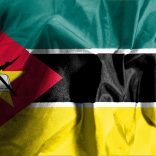Mozambique: Average prices rose slightly in August - AIM report
Social organisations criticise “lack of information and inconsistencies” in state budget – Mozambique

Lusa
The Budget Monitoring Forum (FMO) civil society platform on Friday criticised the “lack of information and inconsistencies” in the 2017 State Budget and Social Economic Plan proposals submitted to Parliament by the Government.
“The PES [Plano Económico Social / Economic Social Plan] and OE [Orçamento do Estado / State Budget] proposals submitted by the Government to the Assembly of the Republic were sent on time, but there is a lack of information, there are incongruities, and it is clear that basic social services will be cut or will not grow in line with the demand for these services,” an FMO report sent to Lusa concludes.
The FMO criticises the lack of detail on the public debt and of an explanatory chapter on hidden debts, referring to the scandal revealed in April of the large loans contracted by state-owned companies guaranteed by the previous government and hidden from parliament and international partners.
“The CPO [Comissão do Plano e Orçamento / Commission for the Plan and Budget] and the AR [Assembleia da República / Assembly of the Republic] must demand detailed information from the Government on the public debt, from the stock, companies or institutions targeted, to the creditors, the payment terms and deadlines, their implications for the State Budget and the strategy adopted so that its impact on the lives of citizens is as little as possible,” the FMO says.
On the subject of the hidden loans, the FMO reiterates that “Mozambicans should not pay the illegal debts that led the country to the current economic crisis”.
In the analysis of the proposals, the FMO notes that the Government will continue to subsidise wheat, fuel and transport companies, “but it does not debate the fiscal sustainability of these measures”.
On the other hand, warned FMO, subsidies will be maintained while social sectors will suffer “significant reductions”, such as the health sector with an 11.5 percent cut and the judicial system, with 22.5 percent less “despite the increase in resources for the Ministries of Defence and the Interior”.
The reduction of the health sector budget, “is particularly worrisome because it will compromise the quality of and access to services provided to the citizen”, the report says.
The document recommends that both tthe Committee and Parliament demand explanations from the executive about the criteria used in the cuts, as well as an explanation of how the economy is to be stimulated without new investments, and only those already initiated being finalised.
The State Budget forecasts an increase in overall resources of 11.9 percent over the previous year and a budget deficit of 32 percent, or 10 percent of gross domestic product (GDP), the report said.
“Current revenues (including fiscal revenues) are expected to contribute more to the state revenue, which may mean that in 2017 Mozambicans will pay more taxes to the state as individuals and companies,” it notes.
The analysis finds it strange that the communication in London, at the end of October, of the Ministry of Economy and Finance to the creditors represents a divergence from the data contained in the Economic and Social Plan and in the State Budget, while it regrets that international entities and not Parliament were given priority access to the information.
“Taking into consideration that this weakens accountability and the consolidation of a democratic state of law, the Assembly of the Republic must take an urgent position on the matter,” the FMO says.
Furthermore, ranging from the macroeconomic assumptions to budget allocations by sector, “there is a great lack of information and coherent explanation”, the FMO points out, concluding that “these shortcomings lead one to suppose that the Government does not intend to discuss the political, economic and social situation of the country and its implications in the State Budget”.
The Fórum de Monitoria do Orçamento [FMO] focuses on public finances, particularly the state budget, “for the benefit of the less favoured groups”, and brings together some of the main Mozambican Non-Governmental Organisations, such as the Grupo Moçambicano da Dívida [Mozambican Debt Group], the Fundação para o Desenvolvimento da Comunidade [Community Development Foundation], Centro de Integridade Pública [Public Integrity Centre] and the Centro de Aprendizagem e Capacitação da Sociedade Civil [Civil Society Learning and Empowerment Centre].












Leave a Reply
Be the First to Comment!
You must be logged in to post a comment.
You must be logged in to post a comment.